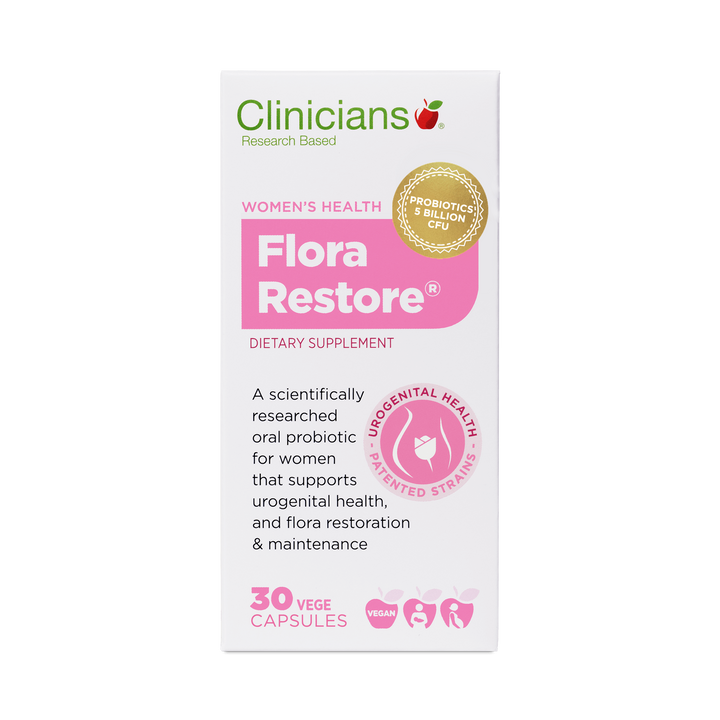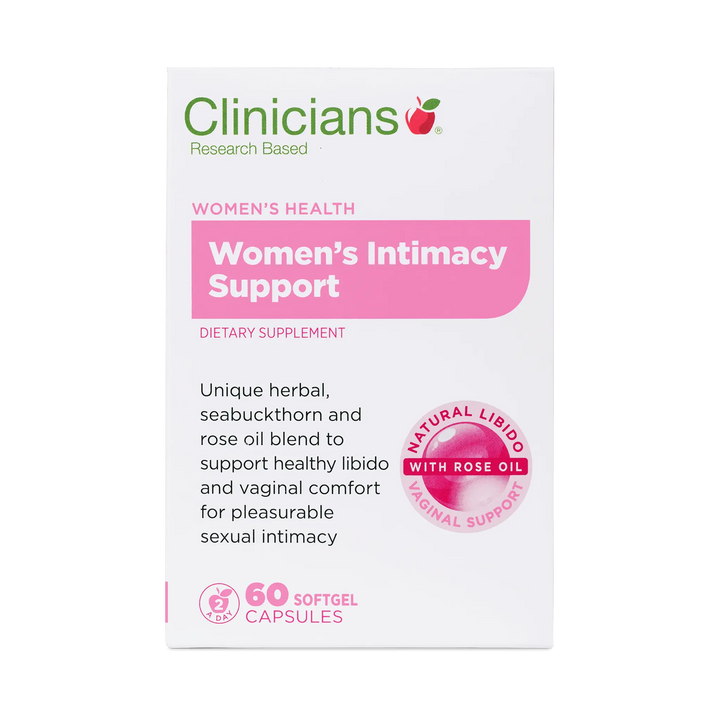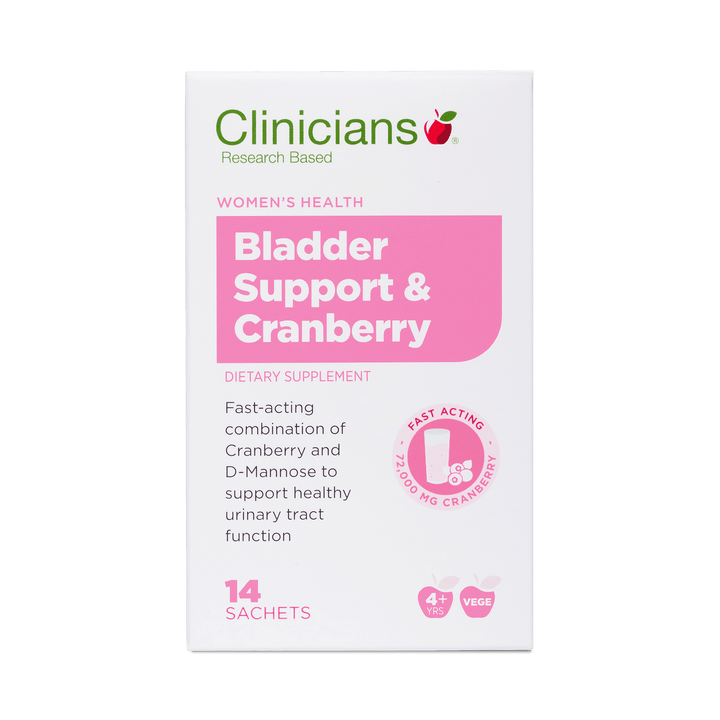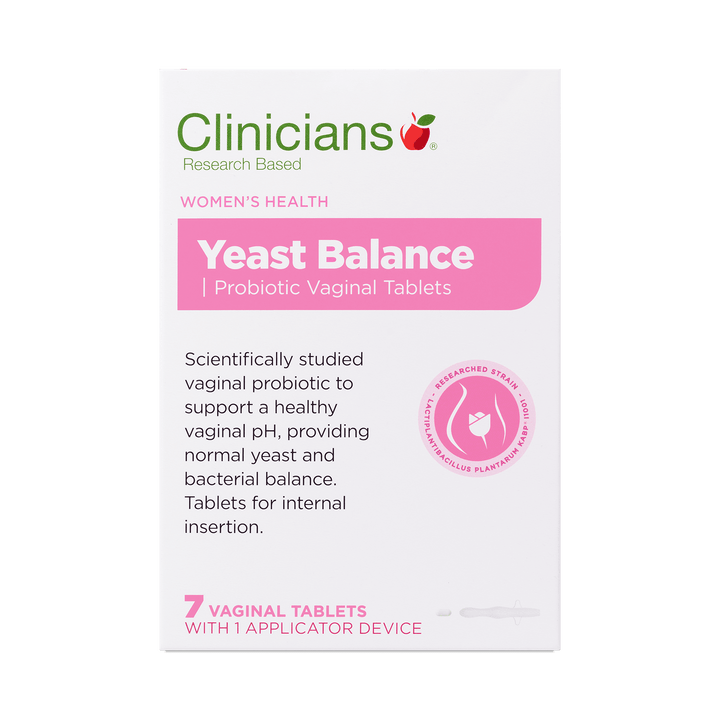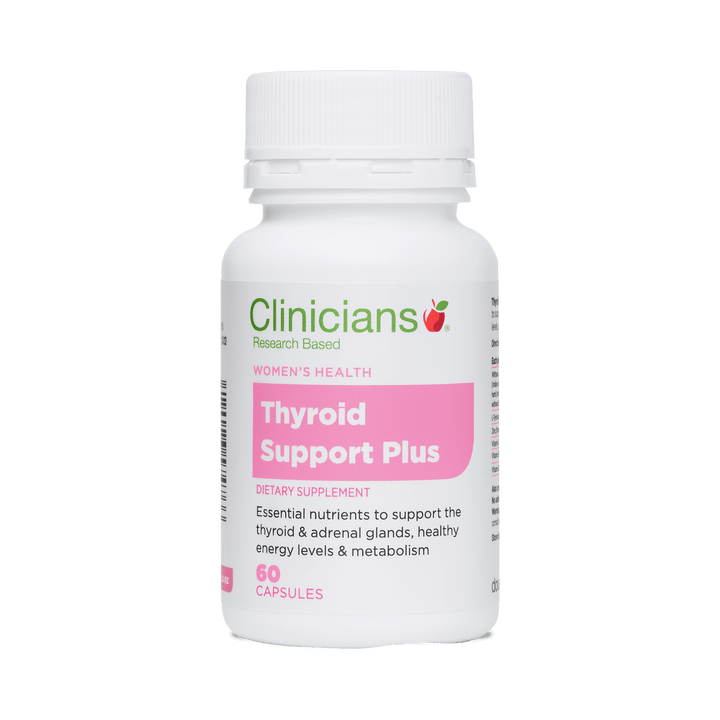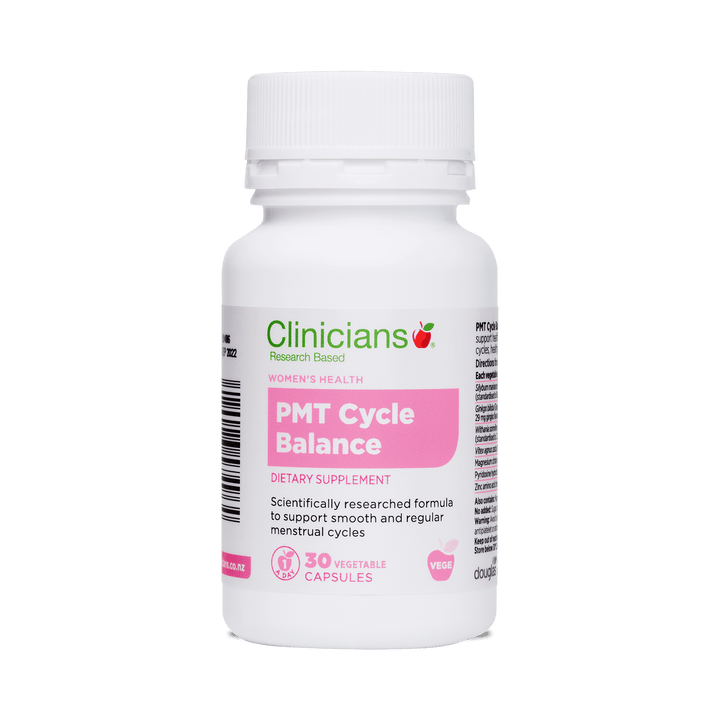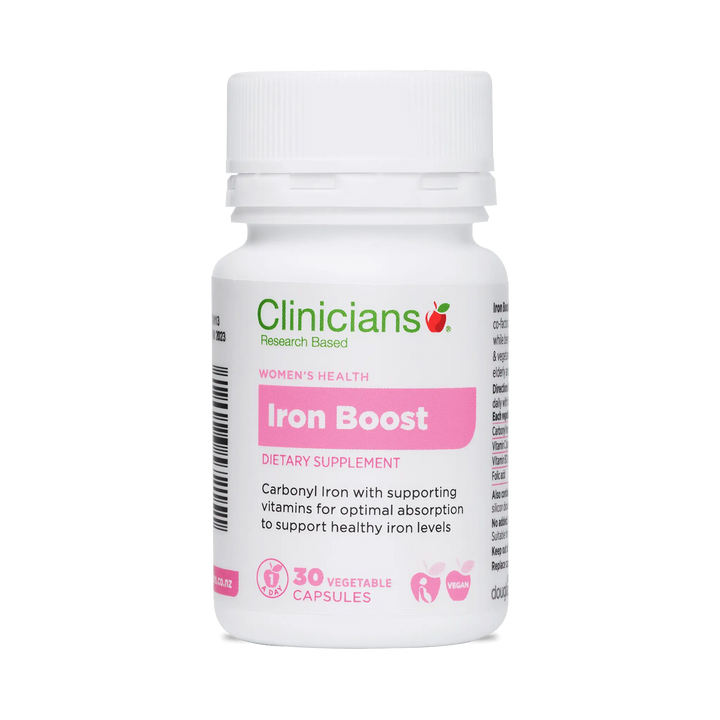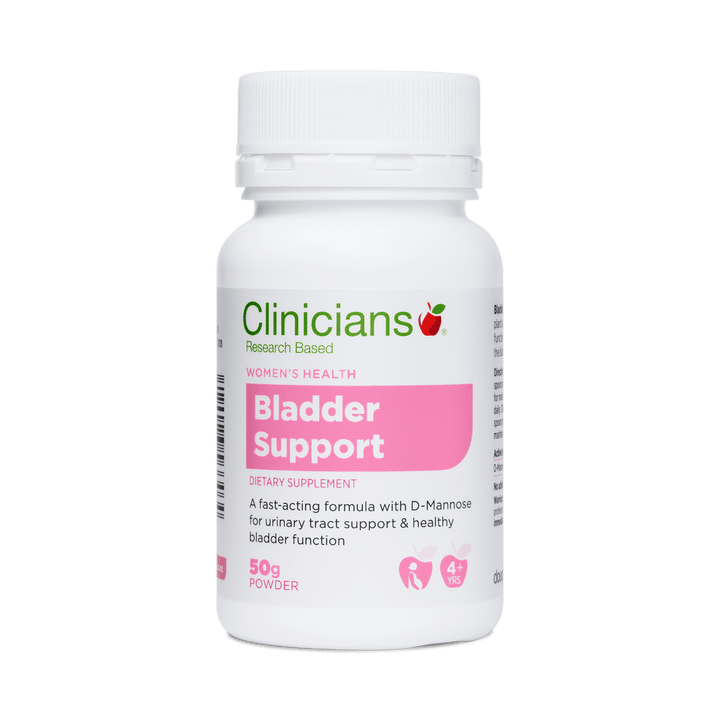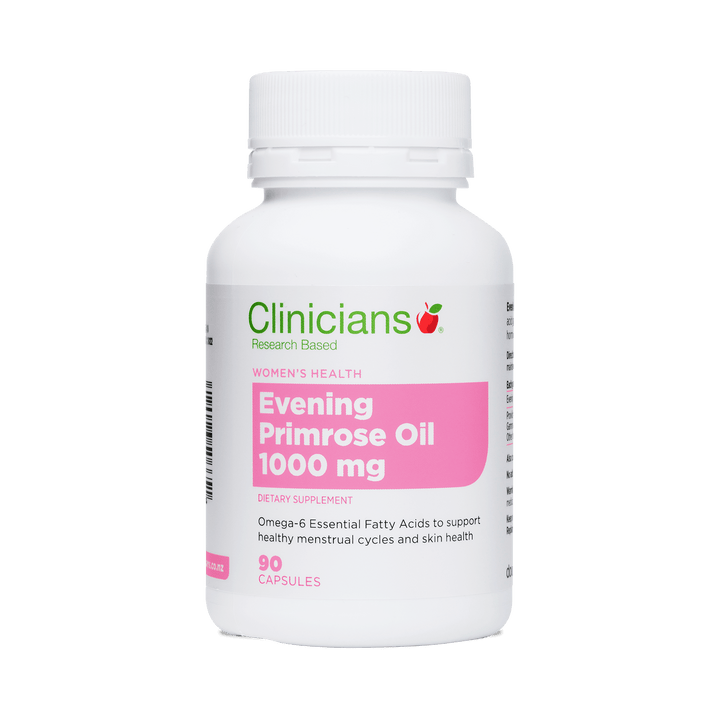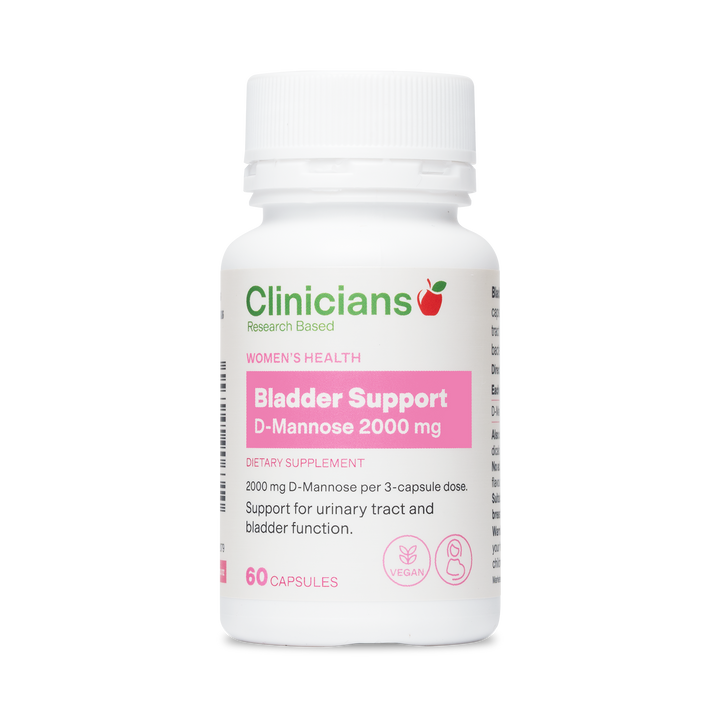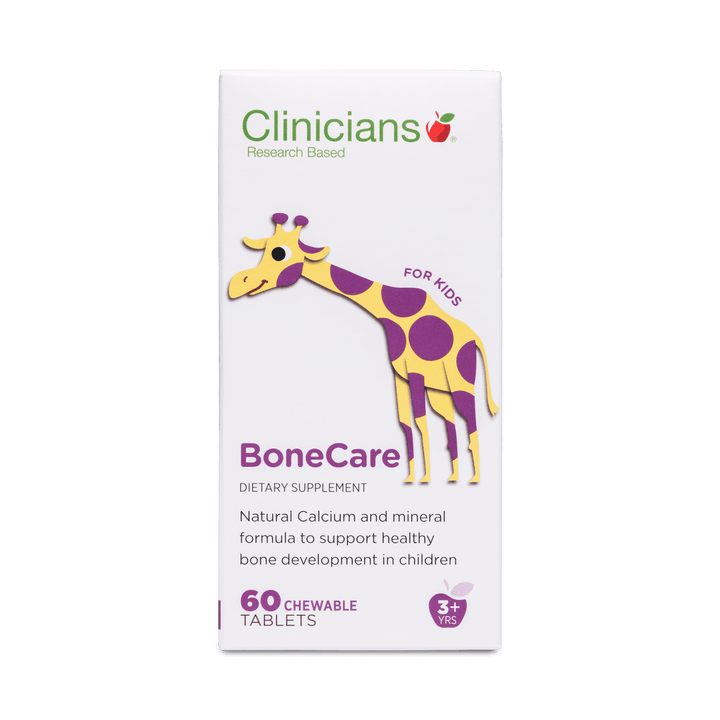Menopause is something most women will experience, so let's talk about it. What can you expect? How might your body change? Is it the same for everyone?
The most important thing to keep in mind with menopause is that women' experiences vary widely. Although it can feel natural to want to compare yourself to others, it's also totally normal for you to experience something that someone else won't (and vice versa!).
All bodies are unique, so it makes sense that our journey through menopause will be too.
It's common for menopause to start between 45 to 55 years of age and for symptoms to last around 4 to 6 years from your last period.1 However, this may not be the case for everyone.
We've put together a list of helpful tips to support general symptoms you might find uncomfortable during menopause. For example, mood changes or temperature changes (like hot flushes) and broken sleep.
Some may be more relevant to your own experience than others – and it's quite possible that none of them might be (and that's OK)!
Take care of your adrenals to improve sleep quality
Adrenals are little organs that sit on top of your kidneys and they play an important part in our menopausal years.
As our ovaries start winding down hormone production, that job moves to the adrenal glands and fats cells. For many busy women though, the adrenal glands are already focused on producing hormones to support our stress response. Adding in the new job of producing female hormones means they can get overloaded. This can lead to changes in the levels of the stress hormone cortisol.
Cortisol can make us feel overstimulated and too much of it can lead us to:
- wake in the night – usually around 3am
- overheat when under stress.
To support adrenal health and hormone production, try adding more of these to your diet:
- Vitamin C: Good sources include citrus fruits, rockmelon, strawberries, tomatoes, broccoli, cabbage, kiwifruit and sweet red peppers.
- B5 and B6: Good sources include brewers' yeast, soybeans, sunflower seeds, eggs, avocado and fish.
There are also some great herbs that you can use too. Ginseng, Withania (also known as Ashwagandha), Rhodiola and Bacopa are all adaptogenic herbs, which means they can help your body adapt to stress. Ginseng and Rhodiola are energising herbs, great to take in the morning if you've had a poor night's sleep and have a busy day ahead. Withania can be taken to support relaxation and calm, and Bacopa is great to support mental clarity and focus.
Balance blood sugar to support mood and cravings
When cortisol from our adrenals put us into “fight or flight mode” our body prepares by releasing sugar into the bloodstream.
This can lead to unbalanced blood sugar levels leaving us feeling:
- tired
- grumpy
- craving sugary or starchy snacks (which can lead to excess fat stored around our middle).
Support healthy blood sugar levels by eating regular meals that include protein (like nuts, legumes, meat, eggs and dairy). Protein has a slower energy release which can help you feel fuller for longer and avoid energy slumps between meals. Also try to minimise refined carbohydrates like white bread, white rice and sugary foods or drinks that can give you blood sugar peaks and dips.
If you have started gaining a little round the middle have a look at chormium. This can help reduce sugar cravings and supports your body to work better with sugar. Good food sources of chromium include broccoli, liver and brewers yeast.
Reduce bladder or vaginal discomfort through diet
Oestrogen is a hormone that supports sexual and reproductive development in women. It's used in many places in the body, for example, the bladder and vagina.
Oestrogen helps the tissues in these areas become plump and well lubricated. If oestrogen levels decrease (as they do during menopause), these tissues can become dry and irritated. This can lead to discomfort during intimacy, making it a less pleasurable experience. It can also make women more susceptible to bacterial imbalances. In the vagina, this can lead to issues like Bacterial Vaginosis (or BV) or yeast infections. It can also lead to an increase in recurrent bladder infections.
If you're looking for hormonal support, there are some foods that can be eaten that contain phytoestrogens (phytoestrogens are a substance in plants that have a similar chemical structure to oestrogen).
Foods high in phytoestrogens are:
- flaxseed
- nuts
- wholegrains
- fruits and vegetables like apples, celery, alfalfa sprouts, soybeans and other members of the pea family
- herbs like fennel, parsley, red clover, sage and black cohosh (a woodland herb that's native to North America).
Help your liver work more efficiently
Although its main job is to detoxify the body, your liver also contributes to your hormonal health – especially during menopause.
When it comes to hormones, your liver has two key roles:
- to help process and distribute hormones into the bloodstream where they act as chemical messengers to the body’s tissues and organs
- to filter out excess hormones from the bloodstream and send them off to be removed from the body
But if the liver is too busy detoxifying the body, it may not do these jobs very well and this can lead to menopausal symptoms (like hot flashes).
To support your liver:
- reduce toxins like alcohol, smoking, junk food, sugar and environmental chemicals (e.g. sprays, chemical cleaning products, fumes)
- drink plenty of water to flush away toxins
- increase your brightly coloured fresh fruit and vegetables with are rich in antioxidants
- add herbs to your diet that help to support the liver like milk thistle, dandelion and globe artichoke.
Cut down on stimulants to help control hot flashes
Stimulants are something you take that increase the activity in your brain and nervous system2 for a short period of time.
For example:
- Caffeine
- Cigarettes
- Alcohol
Research shows that stimulants like these can make hot flashes and night sweats worse. So, it's a good idea to cut down on these in your diet and lifestyle.
Caffeine
Remember, it's not just coffee that has caffeine. Other food and drink like: medium to dark chocolate, Tiramisu, energy drinks, green tea and some medications can have high levels of caffeine too. Make sure to check the ingredients list or with your health practitioner if you're unsure.
For coffee drinkers, you might be quite attached to the routine of making coffee – and it's a good break for the brain and body to get up and move around. So here are some suggestions on how to reduce your caffeine intake but still enjoy what you love:
- Try a half-strength or decaf coffee.
- Try drinking your coffee before midday and limit it to 1 or 2 cups max.
Cigarettes
Smoking causes a number of health issues. For menopause, it can also cause discomfort as smoking has been shown to increase the frequency and intensity of hot flashes3. So, it'll come as no surprise that quitting can make a big difference to how comfortable you feel.
Want to quit smoking? Take a look at these resources:
Alcohol
Like caffeine and cigarettes, alcohol is also a stimulant. As your body processes alcohol, it causes the blood vessels to expand and you'll start to feel warmer. Cutting down alcohol or replacing it with something else will put you at less risk of triggering hot flashes during menopause.
Here are some ideas for substitutes or cutting back on alcohol:
- Cut your drink serving size in half
- Increase the dilution of a non-alcohol mixer
- Try low-alcohol drinks or non-alcoholic spirits
- Explore recipes for mocktails
Got questions?
You know your body, so if you're experiencing something that doesn't feel quite right make sure to check in with your health practitioner.
If you'd like advice on vitamins and supplements that can support your body during menopause, please get in touch. You can book a free appointment with one of our in-house Naturopaths.
Menopause Balance
Herbal formula for women to support emotional and physical changes that occur during menopause.
References:
1 https://www.nhs.uk/conditions/menopause/
https://www.nhs.uk/conditions/menopause/symptoms/
2 https://www.medscape.com/viewarticle/829114
3https://www.ncbi.nlm.nih.gov/pmc/articles/PMC4546860/



